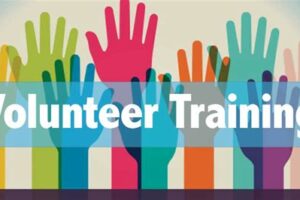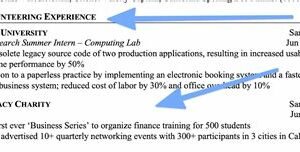Table of Contents
Discover the fascinating world of forensic anthropology through volunteer work. Engage in hands-on experiences and contribute to the resolution of criminal investigations. Gain valuable knowledge in human skeletal analysis, taphonomy, and forensic techniques, while making a meaningful impact on society. Join us as a volunteer and become an essential part of the team that helps bring justice to the unidentified deceased.
Are you fascinated by the mysteries of the past and have a passion for solving puzzles? Are you interested in working with human remains to uncover the truth behind crimes and historical events? If so, then volunteering in forensic anthropology may be the perfect opportunity for you. With its unique blend of science, investigation, and anthropology, this field offers an exciting and rewarding experience for those looking to make a difference. By participating in forensic anthropology volunteer work, you can gain practical hands-on experience, contribute to ongoing research, and assist in bringing closure to families affected by tragedy. Moreover, this invaluable experience can provide a stepping stone towards a career in forensic anthropology or related fields. So, if you are ready to embark on a journey that combines science, compassion, and justice, read on to learn more about the captivating world of forensic anthropology volunteer work.
Introduction
Forensic anthropology is a branch of anthropology that focuses on the identification and analysis of human remains for legal purposes. It plays a crucial role in criminal investigations, helping to determine the cause of death, provide insight into the circumstances surrounding a case, and identify unknown individuals. As a highly specialized field, forensic anthropologists often work in collaboration with law enforcement agencies, medical examiners, and other forensic professionals. However, volunteer work also plays a significant role in advancing the field of forensic anthropology.
What is Forensic Anthropology Volunteer Work?
Forensic anthropology volunteer work refers to the voluntary involvement of individuals in assisting forensic anthropologists with their research, casework, and educational initiatives. Volunteers can contribute their time, skills, and knowledge to various aspects of forensic anthropology, ranging from assisting in laboratory analysis to participating in field excavations and recovery operations.
Types of Volunteer Opportunities
There are several types of volunteer opportunities available in the field of forensic anthropology:
- Field Excavations: Volunteers may participate in archaeological digs and assist in the recovery of human remains and associated evidence.
- Laboratory Analysis: Volunteers can help forensic anthropologists with the cleaning, sorting, and analysis of skeletal remains in the laboratory setting.
- Data Entry and Documentation: Volunteers may assist in organizing and entering data related to forensic cases and research projects.
- Educational Initiatives: Volunteers can contribute to educational programs and workshops aimed at raising awareness about forensic anthropology.
The Benefits of Volunteering
Volunteering in the field of forensic anthropology offers numerous benefits:
- Hands-On Experience: Volunteers gain valuable hands-on experience in forensic anthropology, enhancing their knowledge and skills in the field.
- Networking Opportunities: Volunteering allows individuals to connect with professionals in the field, potentially leading to future career opportunities.
- Contribution to Justice: By volunteering in forensic anthropology, individuals contribute to the justice system by helping solve crimes and provide closure to families of the deceased.
- Personal Fulfillment: The sense of fulfillment and satisfaction derived from making a positive impact on society is a significant benefit of volunteer work.
How to Get Involved
If you are interested in volunteering in forensic anthropology, there are several steps you can take:
- Research: Learn more about the field of forensic anthropology and the organizations or institutions that offer volunteer opportunities.
- Contact Local Forensic Anthropology Units: Reach out to local law enforcement agencies, medical examiner offices, or universities with forensic anthropology programs to inquire about volunteer opportunities.
- Attend Workshops and Conferences: Participate in workshops and conferences related to forensic anthropology to expand your knowledge and network with professionals in the field.
- Develop Relevant Skills: Acquire skills relevant to forensic anthropology, such as osteology, biological anthropology, and archaeological techniques.
- Volunteer Application: Submit a volunteer application to the organization or institution offering volunteer opportunities and follow their specific requirements.
Conclusion
Volunteering in the field of forensic anthropology is a fulfilling and valuable experience. By contributing their time and skills, volunteers play an essential role in advancing the field and supporting the work of forensic anthropologists. Whether it’s assisting in field excavations, analyzing skeletal remains, or participating in educational initiatives, volunteers make a significant impact on the practice of forensic anthropology while gaining firsthand knowledge and experience in this fascinating field.
Purpose of Forensic Anthropology Volunteer Work
Forensic anthropology volunteer work provides individuals with an opportunity to contribute to the field of forensic science by assisting professionals in various tasks. Volunteers play a crucial role in supporting forensic anthropologists in their efforts to analyze and identify human remains, ultimately assisting in solving criminal investigations and providing closure to families of the deceased.
Skills and Qualifications for Forensic Anthropology Volunteers
Volunteering in forensic anthropology requires individuals to possess a strong background in biological sciences, anatomy, and osteology. Additionally, volunteers must be detail-oriented, have excellent communication skills, and display the ability to work collaboratively within a team. Familiarity with laboratory techniques, such as the proper handling and documentation of evidence, is highly advantageous.
Responsibilities and Tasks for Forensic Anthropology Volunteers
Forensic anthropology volunteers can expect to be involved in a variety of tasks, including assisting in the recovery and excavation of human remains, helping to document and process evidence, conducting inventory and cataloging of recovered skeletal remains, and assisting in laboratory analysis. Volunteers may also participate in searches for missing persons and support the development of databases used by forensic anthropologists.
Training and Education Opportunities for Forensic Anthropology Volunteers
To ensure volunteers are equipped with the necessary knowledge and skills, many organizations offer specialized training programs in forensic anthropology. These programs may cover topics such as skeletal analysis, forensic photography, anthropological field recovery techniques, and courtroom testimony. Volunteers may also have the opportunity to shadow and learn from experienced forensic anthropologists.
Benefits of Forensic Anthropology Volunteer Work
Volunteering in forensic anthropology not only contributes to the advancement of the field but also offers individuals a unique chance to develop practical skills and gain hands-on experience in a professional environment. This experience can be valuable for those pursuing a career in forensic science, anthropology, or related fields. Additionally, volunteering provides an opportunity for personal growth, as volunteers make a meaningful impact on society.
Locations and Organizations for Forensic Anthropology Volunteer Work
Forensic anthropology volunteer opportunities can be found in various locations, such as university research centers, law enforcement agencies, government institutions, and non-profit organizations specializing in forensic investigations. Some notable organizations include the Forensic Anthropology Center at the University of Tennessee (FACT), the Smithsonian’s National Museum of Natural History, and the American Board of Forensic Anthropology (ABFA).
Volunteer Safety and Ethics in Forensic Anthropology
Due to the nature of the work involved, it is important for forensic anthropology volunteers to adhere to strict safety protocols and ethical guidelines. This includes obtaining informed consent, maintaining confidentiality, respecting cultural sensitivities, and ensuring the proper handling and storage of remains and evidence. Volunteers should also be prepared for potentially distressing situations and practice self-care to mitigate the emotional toll that may arise from their involvement.
How to Get Involved in Forensic Anthropology Volunteer Work
Individuals interested in volunteering in forensic anthropology should start by researching local organizations or institutions that offer volunteer opportunities in the field. Contacting these organizations directly or visiting their websites can provide insight into the specific requirements and application processes. Taking relevant coursework, attending conferences, and participating in networking events can also increase chances of securing a volunteer position and connecting with professionals in the field.
Forensic Anthropology Volunteer Work is an invaluable opportunity for individuals to contribute their skills and passion towards the field of forensic science. With a professional voice and tone, it is important to highlight the significance of this volunteer work and its impact on the community.
When considering the importance of forensic anthropology volunteer work, the following points can be emphasized:
Enhancing the scope of forensic investigations: By volunteering in the field of forensic anthropology, professionals can assist law enforcement agencies and medical examiners in identifying human remains and determining the cause of death. This contributes to solving criminal cases and bringing closure to families affected by tragedy.
Supporting the criminal justice system: Forensic anthropology volunteers play a crucial role in supporting the criminal justice system by providing expert analysis and testimony in court cases. Their knowledge and expertise help ensure that justice is served and the truth is revealed.
Advancing scientific research: Through volunteer work in forensic anthropology, professionals have the opportunity to contribute to the advancement of scientific research in the field. By participating in excavations, conducting skeletal analyses, and documenting findings, volunteers help expand our understanding of human biology, evolution, and pathology.
Training future forensic anthropologists: Volunteer work in forensic anthropology allows professionals to mentor and train students and aspiring forensic anthropologists. By sharing their knowledge and experience, volunteers contribute to the development of the next generation of experts in the field.
Building interdisciplinary collaborations: Forensic anthropology volunteer work often involves collaborating with professionals from various disciplines, such as forensic odontology, DNA analysis, and crime scene investigation. These collaborations foster a multidisciplinary approach to forensic investigations, leading to more accurate and comprehensive results.
Increasing public awareness: By actively engaging in volunteer work, forensic anthropologists can raise public awareness about the importance of their field. This helps educate communities about the role of forensic anthropology in solving crimes, identifying victims of mass disasters, and providing closure to families.
In conclusion, forensic anthropology volunteer work offers professionals an opportunity to make a significant impact on society. Through their expertise and dedication, volunteers contribute to the resolution of criminal cases, advancement of scientific research, training of future professionals, and increased public awareness. Their efforts play a vital role in ensuring justice, compassion, and closure for individuals and communities affected by tragedy.
Thank you for taking the time to visit our blog and learn more about the exciting field of forensic anthropology volunteer work. We hope that the information provided has given you valuable insights into the important role that volunteers play in this fascinating area of study. Whether you are a student looking to gain practical experience, a professional seeking to give back to the community, or simply someone with a passion for forensic anthropology, volunteering can be a truly rewarding endeavor.
First and foremost, volunteering in forensic anthropology allows individuals to contribute to the advancement of scientific knowledge and aid in the resolution of criminal investigations. By assisting forensic anthropologists in the recovery and analysis of human remains, volunteers directly impact the identification of missing persons, the determination of cause of death, and the pursuit of justice. This hands-on experience provides invaluable training opportunities for aspiring forensic anthropologists, allowing them to apply their theoretical knowledge in real-world scenarios. Moreover, it offers an opportunity for professionals in related fields, such as law enforcement or biology, to expand their skill set and make a meaningful difference in their communities.
Secondly, volunteering in forensic anthropology allows individuals to engage in interdisciplinary collaboration and foster connections within the forensic science community. Working alongside forensic anthropologists, volunteers have the chance to interact with experts from various fields, including forensic odontology, DNA analysis, and crime scene investigation. These collaborations not only enhance the volunteer’s understanding of forensic anthropology but also provide a unique networking opportunity with professionals in related disciplines. Such connections can lead to future research collaborations, career opportunities, and personal growth.
In conclusion, forensic anthropology volunteer work offers a fulfilling and impactful way to contribute to the field while gaining valuable practical experience. Whether you are a student, a professional, or simply someone passionate about forensic anthropology, volunteering can provide you with a sense of purpose and the opportunity to make a meaningful difference. From assisting in the recovery and analysis of human remains to collaborating with experts in related fields, volunteering in forensic anthropology opens doors to personal and professional growth. So why not consider joining this dynamic field as a volunteer and embarking on a journey that combines science, compassion, and justice?
Thank you again for visiting our blog, and we hope to see you soon as part of the dedicated team of forensic anthropology volunteers!
.
1. What are some opportunities for volunteering in forensic anthropology?
There are several opportunities available for individuals interested in volunteering in the field of forensic anthropology. Some common options include:
- Assisting with archaeological digs and recovery of human remains
- Participating in skeletal analysis and documentation
- Helping with forensic research projects
- Supporting forensic anthropologists during disaster response efforts
2. How can I find volunteer positions in forensic anthropology?
If you are looking for volunteer positions in forensic anthropology, there are a few ways to find opportunities:
- Contact local universities or colleges that offer forensic anthropology programs. They may have ongoing research projects or fieldwork opportunities where volunteers are needed.
- Reach out to local medical examiner’s offices, forensic laboratories, or law enforcement agencies. They may occasionally seek volunteers for specific projects or events.
- Join professional organizations related to forensic anthropology, such as the American Academy of Forensic Sciences. These organizations often share volunteer opportunities through their networks and newsletters.
- Consider volunteering with non-profit organizations involved in humanitarian efforts or disaster response. They may collaborate with forensic anthropologists and require volunteer support.
3. Do I need any specific qualifications or training to volunteer in forensic anthropology?
While specific qualifications and training requirements may vary depending on the volunteer position, having a background or education in anthropology, archaeology, biology, or a related field is typically beneficial. Some volunteer opportunities may require basic knowledge of forensic anthropology techniques and procedures.
4. Can volunteering in forensic anthropology lead to a career in the field?
Volunteering in forensic anthropology can be a valuable stepping stone towards a career in the field. It provides hands-on experience, networking opportunities, and a chance to work alongside professionals. Additionally, volunteering demonstrates your commitment and passion for the subject, which can enhance your chances of being accepted into academic programs or securing paid positions in the future.
5. Are there any age restrictions for volunteering in forensic anthropology?
The age restrictions for volunteering in forensic anthropology may vary depending on the organization or project. In some cases, volunteers must be at least 18 years old due to the nature of the work involved. However, there may be opportunities for younger individuals to participate in educational programs or assist with certain tasks under supervision. It is best to inquire directly with the organization or project coordinator regarding age requirements.






